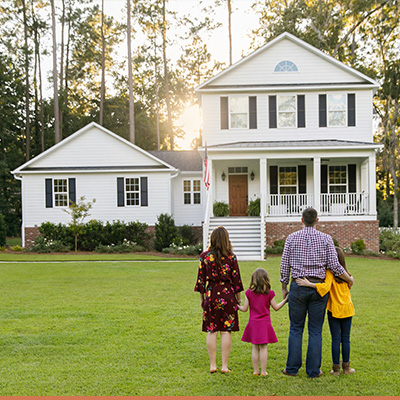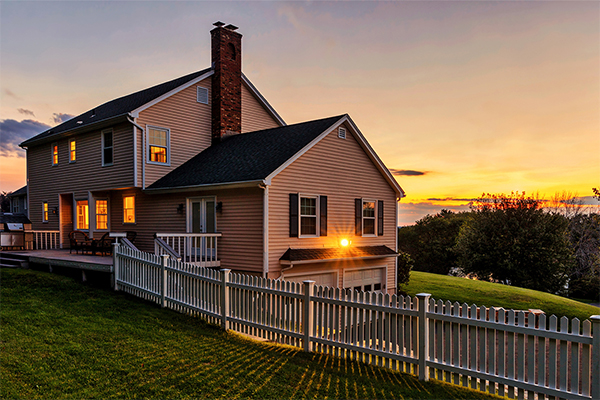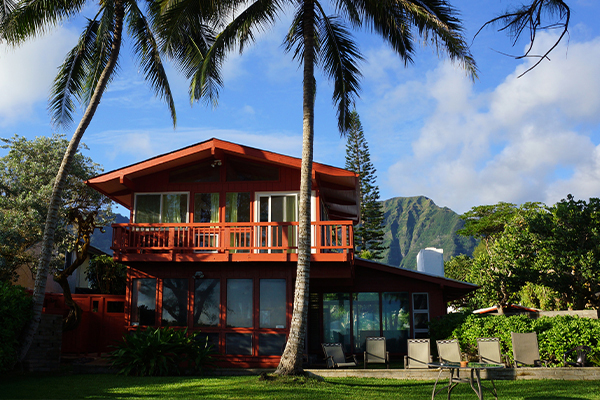Iowa First-Time Home Buyer Programs and Grants of 2022

Key Takeaways:
- Special mortgage programs allow for low interest rates and low monthly mortgage payments.
- Down payment grants and assistance allow you up to $5,000 toward your down payment and closing costs.
- Federal programs give you access to flexible credit requirements and up to 100% financing in some cases.
Buying a first home is an exciting step in life, and once you embark on the process, the dream of homeownership starts to feel like a reality. Many first-time home buyers, however, are overwhelmed by saving for a down payment, figuring out how much they can afford, and securing a mortgage pre-approval letter.
Iowa residents have access to special programs that help offset the upfront costs associated with homeownership. These programs give you access to down payment grants, special loans and lower mortgage rates. Understanding which programs are available and which are best suited to your needs helps get you into your new home faster.
First time home buyers in Iowa: The FirstHome program

The FirstHome program is offered through the Iowa Finance Authority and provides a low mortgage rate, resulting in lower monthly payments. This program is unique in that your rate does not depend on your credit score. For example, with a conventional loan, having a high credit score will secure you a lower interest rate and a lower mortgage payment. However, the FirstHome program offers a single low interest rate, available to any home buyer who qualifies. Additionally, the down payment requirement is only 3% of the purchase price. Qualifying criteria include:
- Income limitations. Income caps apply and vary based on the number of people in your household. For example, income limits range from $79,700 to $101,200 for a household of up to two.
- Purchase price limit. A purchase price cap of $294,000 up to $360,000 applies and varies based on your location.
- Homeownership requirement. To qualify, you must be a first-time home buyer, which is defined as not owning a home in the past three years.
- Occupancy requirements. You must occupy the home as your primary residence within 60 days of closing.
- Debt-to-income ratio limits. The DTI ratio cannot exceed 45%. The DTI ratio is calculated by dividing your total debt (including your new mortgage) by your gross income, which is the amount you earn before taxes. For example, let’s say that you and your spouse each earn $2,500 monthly, for a total of $5,000. Total debt, including car payments, student loans, credit card debt and the prospective mortgage, adds up to $2,000. Divide $2,000 by $5,000 to get a DTI ratio of 40%.
Additionally, at least one borrower on your loan must complete a home buyer education course. The Iowa Finance Authority offers an eligibility checker online to determine whether you qualify for the FirstHome loan program.
How do I apply for the FirstHome loan?
The Iowa Finance Authority maintains a list of approved lenders for the FirstHome program. You can apply for the program and get more details by getting in touch with an approved lender. The lender will collect all required documents, check your eligibility and underwrite your loan application. If you’re eligible, the lender will pre-approve your loan, and you can start shopping for a home. Find a qualifying lender through the Iowa Finance Authority.
Down payment assistance programs
The Iowa Finance Authority offers two down payment assistance programs, a grant and a loan option. The grant offers down payment assistance up to $2,500 to offset the down payment and closing cost. Since this is a grant, there is no repayment required.
The down payment assistance loan must be repaid. It’s a second loan that provides up to 5% of the home’s purchase price, or $5,000 (whatever is less). Repayment of the loan is required if you sell the house, refinance or the first mortgage is paid in full. There is no monthly payment required for the loan. Eligibility requirements include:
- Maximum household income limit. You must meet income limit restrictions, which vary based on household size and geographic location. For example, for a household of two, the income limits range from $79,700 to $101,200.
- Home purchase price limit. You may purchase a home for up to $360,00 in specific areas. You can look at the eligibility checker to find out whether your potential home is in the qualifying area.
- Homeownership history. Down payment assistance is available only to first-time home buyers. This is defined as not owning a home in the past three years.
- The home must be your primary residence. For example, you cannot purchase the home as an investment property and rent it out.
- Credit score and DTI ratio requirements. You must have a credit score of at least 640, and your total DTI ratio cannot exceed 45%.
Military homeownership assistance program

If you’re an active member of the military, a veteran or a qualifying spouse, you may qualify for a grant to assist with your down payment and closing cost. The program offers a $5,000 grant toward down payment and closing cost on a qualifying home. You can use the program in conjunction with the FirstHome program. You must meet one of the following eligibility requirements:
- Service requirement. You must have served 90 days active duty between August 2, 1990, and April 16, 1991, or between September 11, 2001, and the present.
- Have federal status as an injured person serving active duty between August 2, 1990, and April 16, 1991, or between September 11, 2001, and the present.
- Be the surviving spouse of an eligible service member who was discharged as anything other than dishonorable.
The home must be located in the state of Iowa and be purchased by the eligible service member. Additionally, you must occupy the home within 60 days. Property types include single-family homes, condominiums, townhomes or properties containing up to four units, provided one of the units is occupied by the service member.
Apply for the program by getting in touch with a qualifying lender and showing verification of eligibility.
Private mortgage insurance: Do I have to pay it?
The down payment is a major obstacle for first-time home buyers. The benefit of a first-time home buyer program is a low down payment. But keep in mind that if you put down less than 20% on the purchase of a home, you may need to pay private mortgage insurance, also known as PMI.
PMI is paid monthly and protects the lender against financial risk. If you stop making mortgage payments, the lender is covered. The cost of this insurance is typically up to 1% of your loan amount, which is around $1,000 annually for every $100,000 that you finance. For example, if you finance $200,000, you may pay $2,000 annually, or $166 monthly. Once you have at least 20% equity in your home, you can request that the lender drop PMI from your mortgage.
Federal programs for first-time home buyers
Federal mortgage programs are attractive to first-time home buyers because they provide flexible credit requirements and, in some cases, 100% financing. For example, with the United States Department of Agriculture loan, you don’t need to make any down payment, provided you meet property and income eligibility criteria. Here are a few programs popular with first-time home buyers.
Federal Housing Administration loan. The down payment requirement is low for FHA loans – only 3.5% of the home’s purchase price. Credit scores as low as 500 are allowable; however, lower credit scores may require a higher down payment. FHA loans do require PMI, which varies from 0.45% to 1.05% of the loan amount.
USDA loan. The USDA loan is a program designed for low-to-moderate-income home buyers. This loan program offers 100% financing, which means that you could step into a home without a down payment. If you work with a real estate agent to get the seller to pay your closing costs, you could have minimal upfront costs. However, there are requirements about your income and where the property is located. A USDA loan doesn’t require traditional mortgage insurance; however, it requires an upfront guarantee fee of 1% of the loan amount and an annual fee equal to 0.35% of the loan amount.
VA loan. If you’re a member of the active military, a veteran or a qualifying spouse, you may qualify for a VA loan. This loan program doesn’t require a down payment, which offers first-time home buyers a 100% financing option. Additionally, credit score requirements are flexible. The VA loan does not require traditional PMI but does have a one-time funding fee that can be rolled into the loan amount. The VA fee ranges between 1.4% and 3.6%.
Designing a secure financial future
When you buy a new home, you are taking a step toward creating a stronger financial future. There are many considerations for this major purchase, such as the down payment, qualifying for the right loan and getting preapproved, but when you work with a lender to qualify for special programs, many of these concerns are greatly reduced. As a result, you can spend less money getting into your new home and create a more secure financial future.






